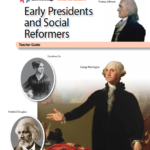Slavery was embedded into America’s fabric by the time of the ratification of the Constitution. Do you think this affected how long slavery lasted in America and how it ended? Explore the National Constitution Center’s 13th Amendment Learning Module to learn more.
Constitutional Index – Amendment 13 Abolition of Slavery Clause
The Constitutional Index breaks down the U.S. Constitution by Section, Amendment, and Clause and contains broader topics and themes. These are used to cross-reference Library resources in an effort to annotate constitutional history.
Women & the American Story: A Nation Divided, 1832-1877
This free curriculum unit from the New-York Historical Society delves into the ways women participated in all aspects of the Civil War and on both sides of the conflict, from the early debate over the expansion of slavery through the end of federal Reconstruction. Materials examine this pivotal moment in American history through the experiences of diverse women and consider how the war and then Reconstruction policies shaped their lives.
Women’s Suffrage and the 19th Amendment
This lesson looks at the historical context of women’s suffrage, tactics used in the movement, and different perspectives of the suffrage movement.
Women’s Suffrage and the 19th Amendment
This lesson looks at the historical context of women’s suffrage, tactics used in the movement and different perspectives of the suffrage movement. Students will view C-SPAN video clips to learn about the suffrage movement and evaluate the tactics used.
Documents and Debates in American History and Government – Vol. 1, 1493-1865
The Core Documents Collection – Documents and Debates is structured around a series of topics, each based on a question for debate. For each topic, there is a collection of documents that, together, form the basis of argument over that topic – from those who debated it at a given point in American history. Volume One covers 1493-1865, and Volume Two covers 1865-2009.
The goal is to explore a series of critical moments in American history by asking questions for which there are not simple yes/no answers, but instead call for informed discussion and rational debate. The Documents and Debates readers also include appendices of additional documents, and together are a perfect fit for any American History survey course, including AP U.S. History.
American Reformers (CKHG Unit)

This unit (the second part of Early Presidents and Social Reformers) focuses on the efforts to improve American society in the early 1800s. Across 6 lessons, students learn about the temperance movement, free public education, the abolitionists’ crusade to abolish slavery, and the early women’s rights movement. The unit explores early reformers’ legacy in ongoing modern-day struggles for equality and civil rights.
“What to the Slave Is the Fourth of July?”
Frederick Douglass earned wide renown as an outspoken and eloquent critic of the institution of slavery. In this speech before a sizeable audience of New York abolitionists, Douglass reminds them that the Fourth of July, though a day of celebration for white Americans, was still a day of mourning for slaves and former slaves like himself, because they were reminded of the unfulfilled promise of equal liberty for all in the Declaration of Independence.
Slavery: No Freedom, No Rights (Lesson Plan)
Examine the history of slavery in the United States. Trace the development and expansion of slavery in the 19th century and learn about the conflicts and compromises that occurred prior to the Civil War and the abolition of slavery.
From the basics about slavery to the attitudes that defended it and the efforts of those who wanted to see it abolished, in this lesson students learn about this dark part of America’s past.
** Please note: The section about the Missouri Compromise and the Compromise of 1850 has been moved to a new mini-lesson called Slave States, Free States that explores the debate about the expansion of slavery. We recommend teaching this mini-lesson along with the Slavery lesson. Find it in our Geography Library.
Reconstruction and Citizenship
Historian Eric Foner, of Columbia University, discusses the major changes in citizenship during and after the Civil War, particularly for African Americans.